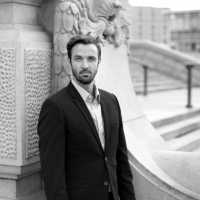
02 Jul Religiosity Maps to a Specific Brain Circuit
MedicalResearch.com Interview with:

Dr, Ferguson
Michael Ferguson, PhD
Instructor in Neurology | Harvard Medical School
Lecturer on Neurospirituality | Harvard Divinity School
Center for Brain Circuit Therapeutics
Brigham and Women’s Hospital
MedicalResearch.com: What is the background for this study?
Response: Over 80% of the global population consider themselves religious with even more identifying as spiritual, but the neural substrates of spirituality and religiosity remain unresolved.
MedicalResearch.com: What are the main findings? Where is this circuit located in the brain? What other effects does this circuit control or influence?
Response: We found that brain lesions associated with self-reported spirituality map to a human brain circuit centered on the periaqueductal grey.
MedicalResearch.com: What should readers take away from your report?
Response: These findings suggest that spirituality and religiosity map to a common brain circuit centered on the periaqueductal grey, a brainstem region previously implicated in fear conditioning, pain modulation, and altruistic behavior.
MedicalResearch.com: What recommendations do you have for future research as a result of this work?
Response: Whereas this study focused on the commonalities between spirituality and religiosity, namely “spiritual acceptance” or more simply “faith”, future work may productively explore which brain circuits are associated with differences between certain forms of spirituality (e.g., mysticism) versus certain forms of religiosity (e.g., fundamentalism).
MedicalResearch.com: Is there anything else you would like to add?
Response: At the level of science and technology, we’re excited that brain imaging methods are increasingly able to probe aspects of human nature that have traditionally been exclusive to philosophers and theologians. We look forward to what we hope will be productive conversations between neuroscience, medicine, spirituality studies, and religion.
Citation:
Michael A. Ferguson, Frederic L.W.V.J. Schaper, Alexander Cohen, Shan Siddiqi, Sarah M. Merrill, Jared A. Nielsen, Jordan Grafman, Cosimo Urgesi, Franco Fabbro, Michael D. Fox. A neural circuit for spirituality and religiosity derived from patients with brain lesions. Biological Psychiatry, 2021; DOI: 10.1016/j.biopsych.2021.06.016
[wysija_form id=”3″]
[last-modified]
The information on MedicalResearch.com is provided for educational purposes only, and is in no way intended to diagnose, cure, or treat any medical or other condition. Always seek the advice of your physician or other qualified health and ask your doctor any questions you may have regarding a medical condition. In addition to all other limitations and disclaimers in this agreement, service provider and its third party providers disclaim any liability or loss in connection with the content provided on this website.
Last Updated on July 2, 2021 by Marie Benz MD FAAD
